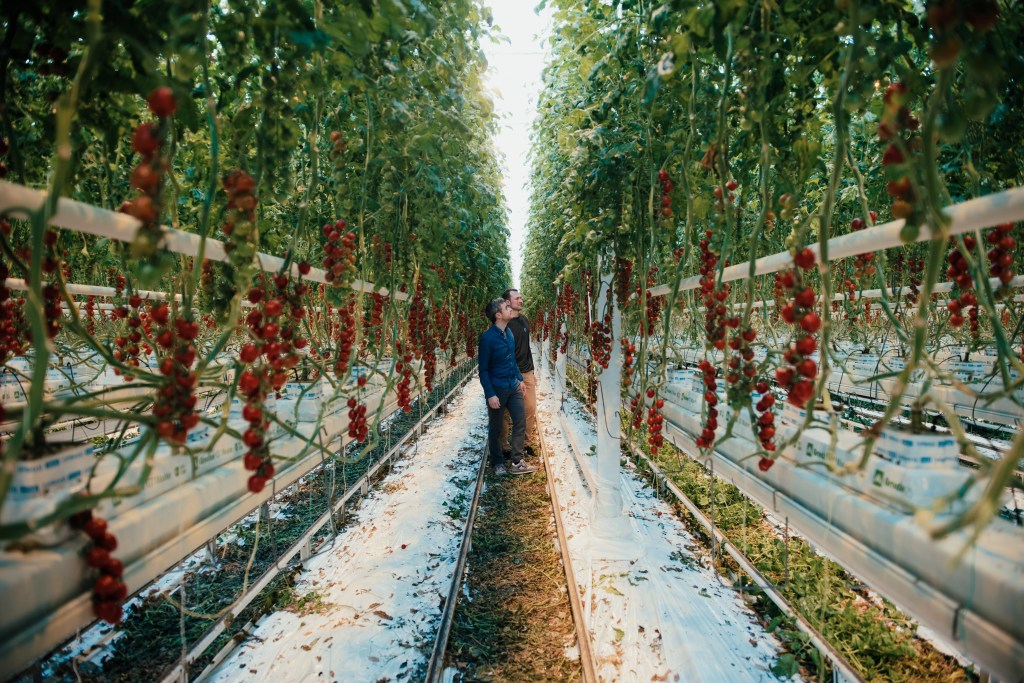Agtech startup Source.ag today announced it harvested a $10 million investment to make greenhouses smarter. The founders have set their eyes on a horizon where, driven by climate change and a rapid increase in global food demand as population continues to increase, more crops are being forced indoors to secure greater crop yields. You wouldn’t believe the amount of restraint it takes to not make a pun about seed funding in a piece about greenhouses. I have no such restraint, so let’s report on this, ahem, growth industry.
The $10 million funding round was led by Acre Venture Partners, with participation from the E14 fund and food-focused venture firm Astanor ventures. The company also raised from industry insiders, including the international association of (mostly) salad growers Harvest House, tomato specialists Agrocare and bell pepper specialists Rainbow Growers.
The company is developing software to empower greenhouses to get smarter. The company argues that greenhouse agriculture is a safer, more reliable and more climate-resilient mode of food production, producing up to 15 times higher yields, using a twentieth as much water as traditional agriculture. What Source adds to the mix is the ability to use data and AI to help greenhouses operate at even higher levels of efficiency and repeatability of high-yield harvests.
“Climate change is driving substantial scarcity and strains in our global food supply. As this accelerates in the coming years, we must find ways to scale efficient growing solutions that lighten the footprint of agriculture,” said Lucas Mann, managing partner at Acre. “Greenhouse agriculture is a proven and viable solution, but without innovation, demand will be impossible to meet. We believe Source.ag can play a vital role in driving its global scalability.”
The funding will be used to accelerate product development and expand commercial collaborations.
“Greenhouses come in all shapes and forms — both more and less technically advanced. On the higher-tech side, want to have control over every dimension you can imagine, including humidity, irrigation and nutrition. Tomatoes, for example, don’t grow in soil. They go in substrate slabs. That means that these operations are arable land independent,” explains Rien Kamman, co-founder ad CEO at Source. “Because you have more control, you’ll have to make more decisions every day. Growers are making decisions on 60-70 parameters every day, which influences how this crop will grow for the rest of the season. You need to get the decision right every day. This might include what to feed the plant, plant-specific parameters, pruning, etc. It’s really a craft and this is why it’s still so hard. You need decades of experience to be doing well at it.”
The complexity of the farming operation itself isn’t in doubt, and Source’s pitch is to take all of these growth parameters, combine that with historical crop yield data and market pricing etc., to create a better experience for the growers.
“Our system is comprised of two aspects. One is a recommendation system that assesses the current state of the plant. It looks at forward-looking predictors like resource prices, weather, etc. And then gives very concrete recommendations to the grower. What should you do today and tomorrow, both on the plant (i.e. how should you trim it, prune it, etc.) and on the indoor climate around the plants to maximize sustainability and production. The second part is what happens when something doesn’t go to plan? This is where the algorithms come in,” Kamman says. “They collaborate with the different control systems to take that strategy and actually make sure to do so implemented in the most efficient way possible.”
Indoor farming still requires a fair chunk of manual labor, especially for big-vine crops such as tomatoes, cucumbers, peppers, etc.; but Source suggests that it can be helpful there, too — by choosing how and where to prune or how many crops to leave to ripen on the vine, you can affect various aspects of the plants’ growth. The interesting thing is overlaying real-time pricing data here — by speeding up or slowing down ripening, I can imagine that could potentially time the harvest time around when your competitors have ripe products, potentially even trading lower yields for better prices, or working with temperatures and weather conditions to reduce production costs, for example.
The company is running on a SaaS model, charging growers on a sliding scale depending on the amount of space they are using for growing.
“Our belief is that agriculture is at an inflection point in history. [Farming] that brought us to where we are today won’t bring us to 10 billion people with a more changing extreme climate. This is a massive market — the need for climate-resilient food systems is going to increase. And then we haven’t even talked about what other traditional agriculture crops could be moved indoors in the next decades,” says Kamman. “I think that what unites our investors and our team is that we’re not so much looking at these advantages short term, but we can build knowledge that is scalable globally.”
The company declined to share screenshots of its product, stating it was “competitively sensitive”.






























Comment